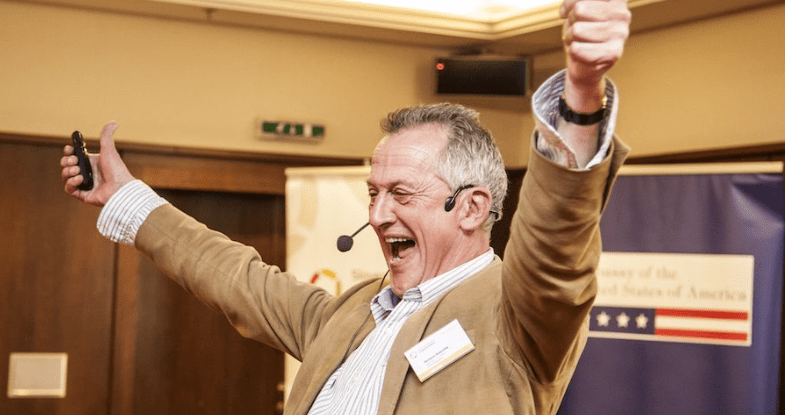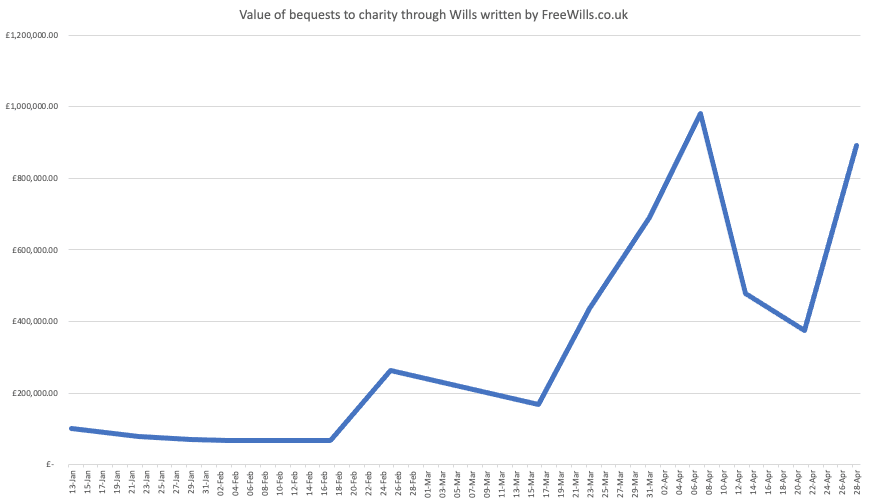Why do people give? The legacy podcast with Richard Radcliffe
What motivates donors to leave money in their Wills? In this edition of his podcast Mark Phillips talks to experienced legacy fundraiser Richard Radcliffe. Richard shares his thoughts on why people leave bequests, as well as some of the changes he has noticed during his 40+ year career. Mark and Richard also touch on recent campaigns and what is different about legacy giving in times of crisis.
- Written by
- Mark Phillips
- Added
- May 28, 2020

Thanks again to Mark Phillips for sharing this edition of Why do people give? with us. You can listen to it on his blog here.
With legacy fundraising growing at a terrific rate, this was an important time to be able to chat with one of the world’s most experienced legacy fundraisers, Richard Radcliffe.
Richard has been a fundraiser for over 40 years and for most of that time, his area of focus has been understanding why people leave gifts to charities in their Wills.
Having had 32,000 conversations with potential legators,over four decades, Richard has a great understanding of what motivates people and what they want to achieve when writing their Will.
In this conversation, Richard shares why people leave bequests and the changes he has noticed over the years, particularly as baby boomers have begun to seriously consider which charities they want to remember.
Unsurprisingly, we discuss legacy giving in the time of coronavirus, examining what is different now and what we should be doing in preparation for the end of the lockdown. We discuss the massive increase in legacy giving that we are currently experiencing and talk about the different types of Will that people write during their lives.
You’ll hear that we refer to the numbers released by FreeWills.co.uk over the last month that demonstrate an astounding level of generosity. Will writers were leaving an average of £60,000 to £70,000 a week to charity in their Wills in the early part of the year through the FreeWills website. Last week saw that figure reach almost £900,000. And, as you’ll see from the following chart, that isn’t the largest sum they have recorded.

I’d recommend following @freewillscouk on Twitter for their updates. It’s an astounding record of public generosity.
We discuss some recent legacy campaigns. For those of you who don’t recognise the phrase My Brother Cyril, it’s a line from a British Red Cross ad that doesn’t seem to be available online anymore, but you can read more about it here.
We also take a look at innovation, particularly the use of digital channels and how we need to get messaging right for your audience, especially when there is a large group of (predominantly younger people) who don’t want to think about Will writing at all.
If you’d like to contact Richard you can find his website here.
I mention that the latest round of Bluefrog research on the impact of coronavirus and giving in general is due for publication this week. I have simply run out of time to get that written up. I’ll publish early next week instead. Apologies. If you missed it, the first study is available here. Drop me a line if you’d like to discuss findings sooner than that.
As before, sound quality isn’t the greatest, but you can understand us both quite easily. You can also subscribe and listen on iTunes. If you enjoy the podcast, and had some time, a review would be really appreciated. Thank you.


















